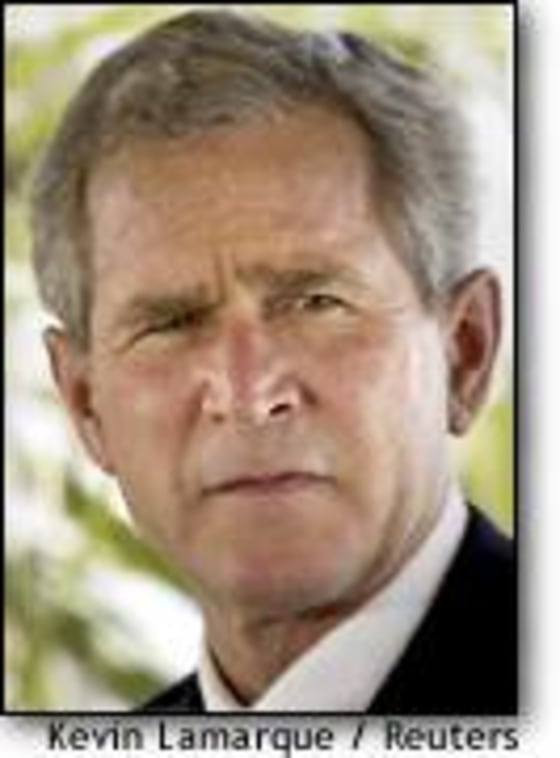North Korea has rejected U.S. President George W. Bush’s proposal to give it multi-nation security assurances if it agrees to scrap its nuclear weapons program, calling the offer laughable and “not worth considering.”
Bush on Wednesday brushed off North Korea’s rebuff, and said he would “stay the course” in his efforts to muster international pressure on North Korea to abandon its nuclear weapons ambitions.
Earlier this week, Bush put forward a plan in which the United States and four other nations would give North Korea written assurances it won’t be attacked if it promises to dismantle its nuclear program. North Korea, in a radio broadcast late Tuesday, reiterated that it would settle for nothing less than a formal nonaggression treaty that would legally bind the United States not to launch a pre-emptive strike against the isolated country. Bush ruled out such a treaty, and instead hopes to craft a deal that would reassure North Korea about its security and bring it back to negotiations — but without ruling out possible U.S. military options when things went sour.
“It is a laughing matter and is not worth considering,” the state North Korean Central Broadcasting Station said in a dispatch monitored by South Korea’s Yonhap news agency.
“We have demanded that the United States drop its hostile policy toward the (North) and sign a bilateral nonaggression treaty with us. We have not demanded some kind of security guarantee.”
During a brief stop in Bali, Indonesia on Wednesday, Bush said, “There’s going to be a series of these statements that I guess are trying to stand up to the five nations that are now united in convincing North Korea to disarm.”
“My only reaction is we’ll continue to send a very clear message to the North Koreans. The good news is that there’s other nations besides America sending the message,” he added.
Bush made his proposal at a summit of 21 Asia-Pacific leaders in Bangkok, Thailand, which was dominated by security issues including North Korea’s nuclear threat. It would commit the United States, China, Japan, Russia and South Korea to a no-invasion pledge.
Washington said that issues, such as when to offer a security pledge and exactly what North Korea would have to do beforehand, were still being debated.
North Korea fired at least one short-range missile off its east coast on Monday, rattling the gathering of Pacific Rim leaders and giving urgency to the yearlong nuclear crisis.
Bush’s overture was a subtle yet significant shift in Washington’s approach. The United States had earlier insisted that North Korea created the nuclear crisis and must move first to end it. Pyongyang paid no heed and began taking steps that could give the country several more nuclear bombs in addition to the one or two it already is believed to possess.
Earlier this month, North Korea announced it completed reprocessing its stash of 8,000 spent nuclear fuel rods and began using plutonium extracted from them to build more atomic bombs. Last week, it indicated that it might test a bomb.
In August, talks between the United States, China, Russia, Japan and the two Koreas in Beijing ended without agreement, even on when to hold another round of talks.
Pyongyang’s main state-run newspaper Rodong Sinmun said Tuesday the August talks “clearly proved the U.S. true intention to totally disarm and destroy” North Korea.
A delegation of U.S. lawmakers hope to meet with North Korea’s reclusive leader Kim Jong Il and discuss the crisis during a rare visit to Pyongyang next week.
